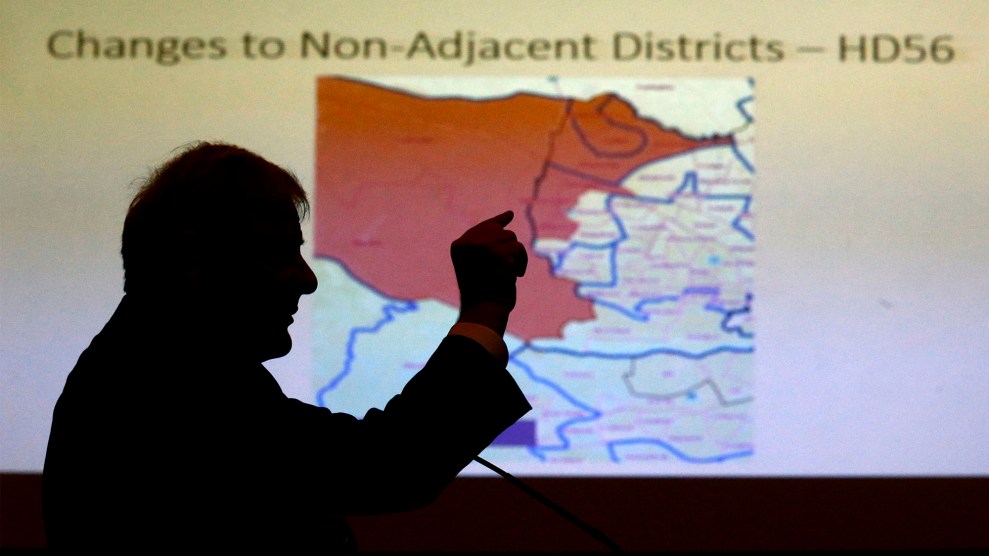
Virginia House Minority Leader David Toscano, D-Charlottesville, looks at a map of a new state legislative district, Aug. 30, 2018.Bob Brown/Richmond Times-Dispatch via AP
The Supreme Court on Monday threw out a challenge to Virginia’s state legislative maps, keeping in place a new map that boosts Democratic chances of retaking the Virginia House of Representatives in 2019.
In a short 5-4 decision, Justice Ruth Bader Ginsburg wrote that Virginia’s Republican-controlled House did not have the authority to appeal a lower-court ruling that 11 state legislative districts were racially gerrymandered by Republicans and needed to be redrawn. Neither the state senate nor the Virginia attorney general joined the appeal, making it invalid, the justices found. “One House of its bicameral legislature cannot alone continue the litigation against the will of its partners in the legislative process,” Ginsburg wrote. In a strange bedfellow lineup, Ginsburg was joined in the majority by Justices Sonia Sotomayor, Elena Kagan, Clarence Thomas, and Neil Gorsuch. Justice Samuel Alito dissented, joined by John Roberts, Stephen Breyer, and Brett Kavanaugh.
In 2018, a three-judge federal district court in Virginia ruled that Republicans illegally concentrated black voters into a small number of predominately African American districts in order to make the surrounding districts whiter and more favorable to Republicans. “Race predominated over traditional districting factors,” the majority ruled.
The court ordered a nonpartisan redistricting expert to draw new districts for 2019 legislative elections, which one analysis found could shift six seats to the Democrats. Democrats are currently only one seat away from taking control of the state house and senate, which would give them control over the redistricting process in 2021, when new lines are drawn.
Republicans in the Virginia House hired Thomas Hofeller, the Republican gerrymandering mastermind who was a key figure behind the Trump administration’s decision to add a citizenship question to the 2020 census, to defend their maps, but the federal court disagreed with his conclusions.
Because this case was decided on technical grounds, it may not shed any light on the other high-profile voting cases before the Supreme Court, as the justices weigh the fate of partisan gerrymandering and the census citizenship question.
*This post has been corrected to note which justices joined the majority opinion












